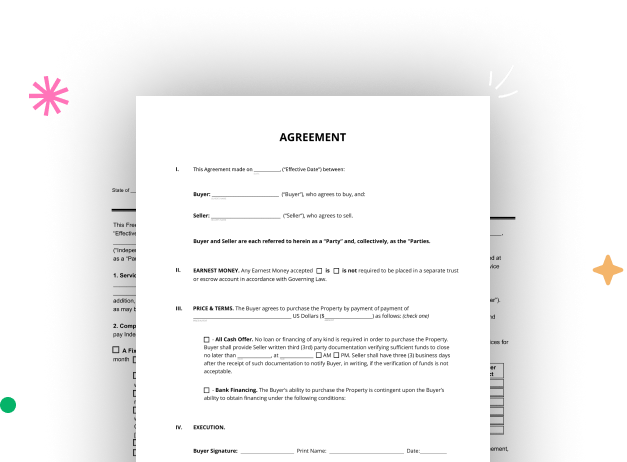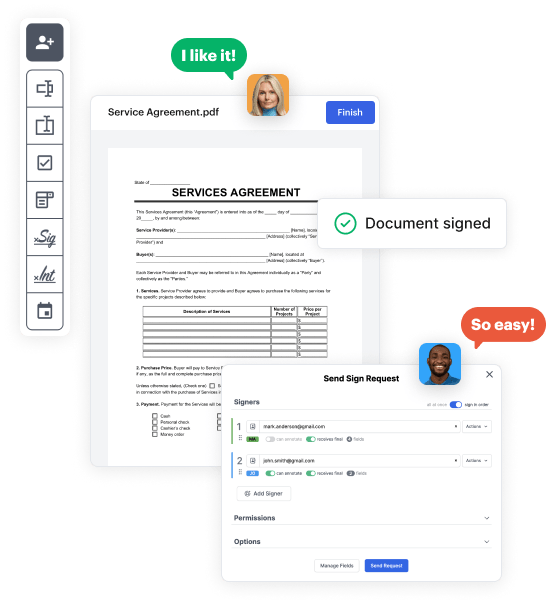

Go to the DocHub website and register for the free trial. This gives you access to every feature you’ll require to build your Mississippi Civil Lawsuit Form without any upfront cost.
Sign in to your DocHub account and navigate to the dashboard.
Hit New Document in your dashboard, and select Create Blank Document to design your Mississippi Civil Lawsuit Form from the ground up.
Add different fields such as text boxes, radio buttons, icons, signatures, etc. Organize these fields to match the layout of your form and designate them to recipients if needed.
Rearrange your form effortlessly by adding, repositioning, deleting, or combining pages with just a few clicks.
Transform your newly designed form into a template if you need to send multiple copies of the same document multiple times.
Send the form via email, share a public link, or even publish it online if you aim to collect responses from a broader audience.